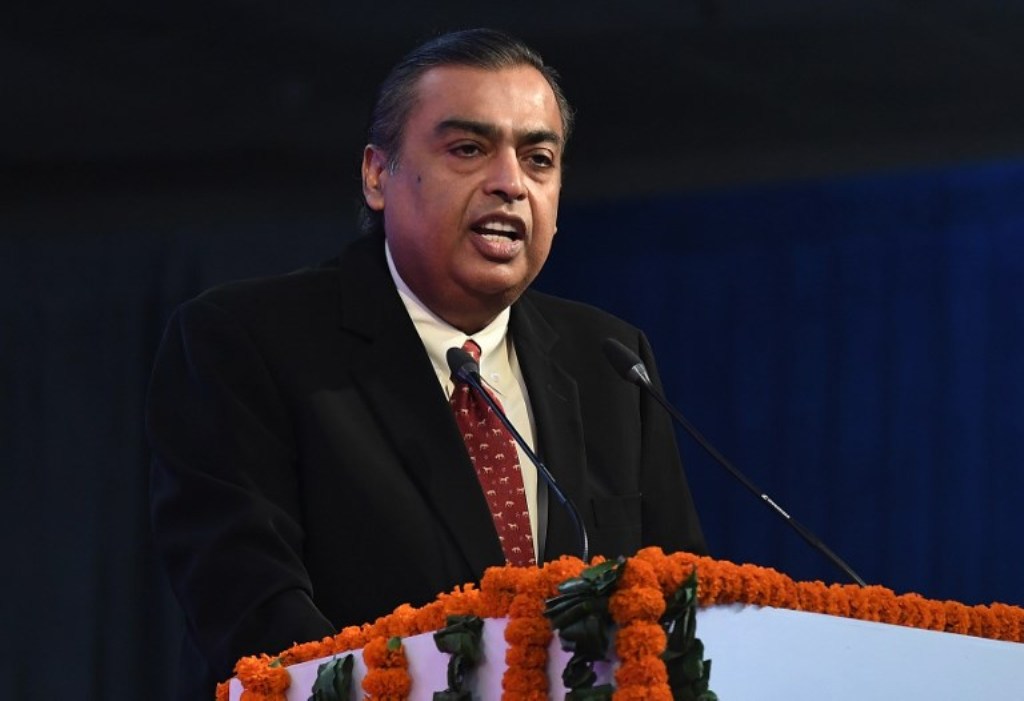RIL Profit Falls 39% To Rs 6,348 Crore In Q4

The company had reported profit of Rs 10,362 crore in the same quarter last year. Revenue of Mukesh Ambani-led oil-to-telecom giant fell 2.3 per cent to Rs 1,39,283 crore from Rs 1,42,565 crore during March quarter of last year.
Meanwhile, Reliance Industries approved a fund raising plan of Rs 53,125 crore via rights issue, which it said was the biggest in India. The ratio would be 1:15 at a price of Rs 1,257. Promoters of the company will subscribe their full entitlement of the rights issue and also to all the unsubscribed portion, Reliance Industries said.
During the quarter, Reliance Industries incurred one-time loss of Rs 4,245 crore on the back of non-cash inventory holding losses in the energy businesses due to dramatic drop in oil prices accompanied with unprecedented demand destruction due to COVID-19, Reliance Industries said in exchange filing.
Reliance Industries’ gross refining margins, a metric of how much the company earned by refining a barrel of crude oil came in at $8.9 per barrel compared with $9.2 per barrel in the previous quarter. The company’s telecom arm Reliance Jio’s net profit nearly tripled to Rs 2,331 crore from Rs 840 crore last year.
Its average revenue per user (ARPU), a key metric of how much revenue a telecom firm earned from an individual user improved to Rs 130.6 per month from Rs 128.4 during the previous quarter.
Reliance is also expected to complete the capital raising programme of Rs 1.04 lakh crore which includes investment by Facebook in Jio Platforms, Reliance Industries said. The company added that in addition to Facebook investment, Reliance Industries received strong interest from other strategic and financial investors and is in good shape to announce a similar sized investment in the coming months.
Meanwhile, in view of the ongoing COVID-19 pandemic, Reliance Industries Chairman and Managing Director Mukesh Ambani announced to forego his entire salary.
“The Chairman had his salary capped at Rs 15 crore since 2008-09 in order to set a personal example of moderation in managerial compensation levels. And now, he is forgoing his salary until the company and all its businesses are fully back to their earnings potential,” Reliance Industries said in a press release. Reliance Industries shares closed 2.86 per cent higher at Rs 1,467 ahead of earnings announcement.
Meanwhile,Reliance Industries has cut the pay of employees by up to 50 per cent as the conglomerate battles lower profitability in wake of the coronavirus pandemic.
The pay cuts were cited in a company note to employees dated April 29. Reliance Industries, headed by India’s richest man, Mukesh Ambani, has decided that employees earning more than Rs 15 lakh a year will face a 10 per cent salary cut, while senior executives will take salary cuts ranging from 30 per cent to 50 per cent. Employees earning less than Rs 15 lakh per annum will not see any reduction in their compensation.
“The hydrocarbons business has been adversely impacted due to reduction in demand for refined products and petrochemicals … the situation demands that we maintain razor sharp focus on operating costs and fixed costs and all of us need to contribute to make this happen,” executive director Hital R Meswani said in the letter.
“Our Chairman has agreed to forgo his entire compensation,” he added, referring to Mr Ambani. Reliance Industries has also announced postponement of the annual cash bonus and performance-linked incentives, which are usually paid in the first quarter.
(ndtv).

